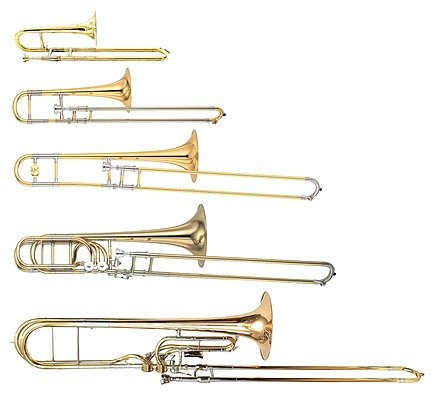









|
TROMBONE HISTORY
 |
|
The trombone is unique because it is the only modern instrument that uses a slide. The trombone's ancestor is the tromba, a long trumpet of the Middle Ages. In Italian, the word trombone means large tromba. An English ancestor of the trombone was the sackbut, a type of slide instrument.
The trombone of today is basically the same as it was when it appeared in 1450. By 1500, Nuremberg, Germany was the center of trombone making. Since the trombone was the only brass instrument of the time that could play any note of the scale, composers gradually found it to be a very useful instrument.
At first, the trombone was played primarily in town concert bands and used in church to accompany singing. By the 1700's the trombones were added to military bands. Mozart and other great classical composers wrote for the trombone in operas and sacred works. Finally, by 1850, trombones were regular members of the symphony orchestra. Parts were written for alto, tenor, and bass trombone. The addition of the valve attachment to the trombone in the early 1900's allowed the lower notes to be played more easily.
Today, trombones are played in bands, orchestras, jazz bands, brass ensembles, and popular music groups.
(per Standard of Excellence, Book 1)
|
|


